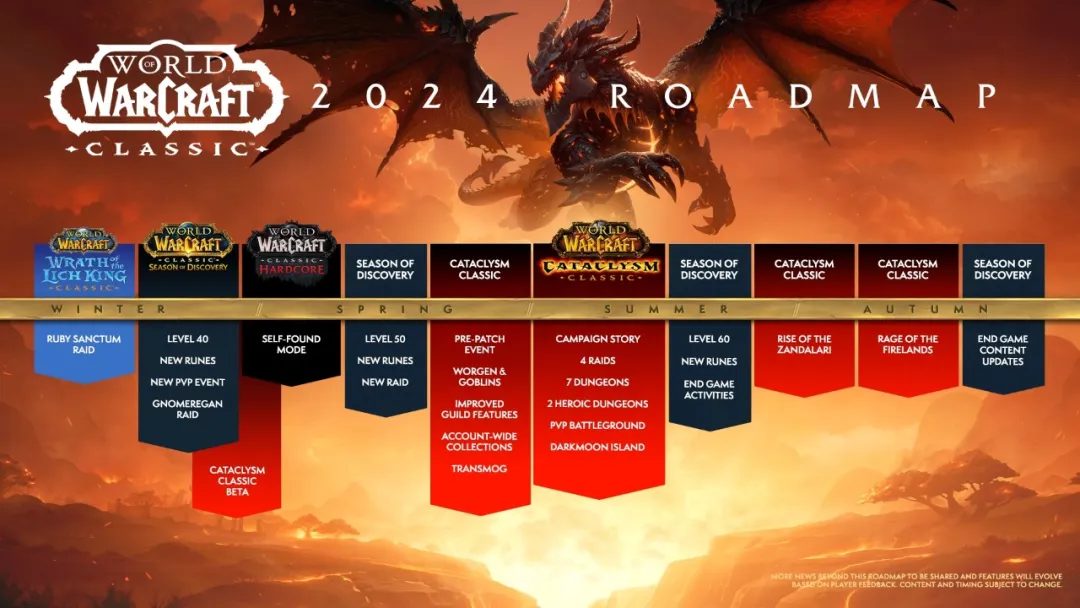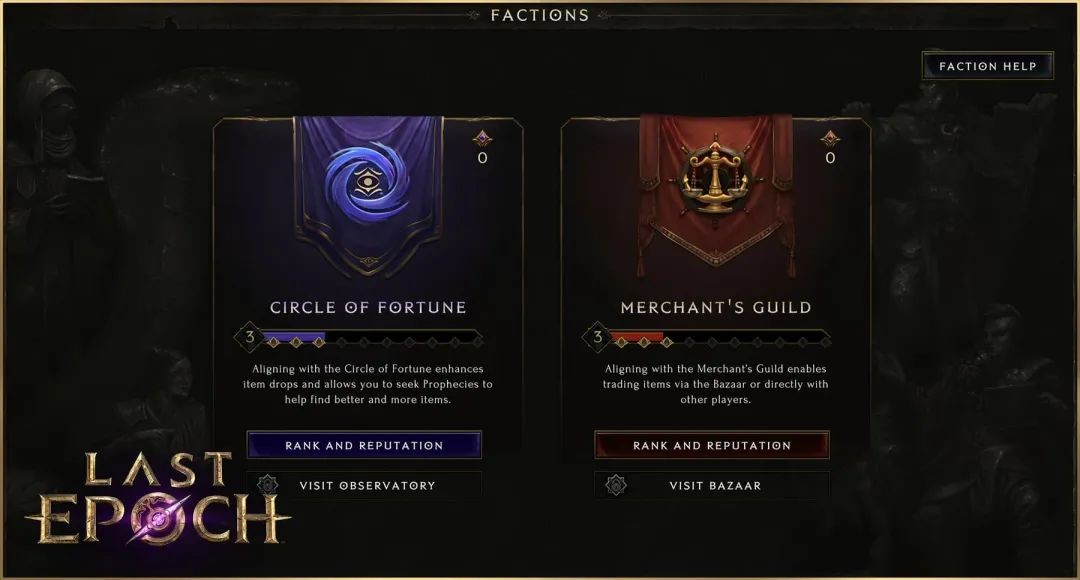
The Auction House
Veteran economic manipulators don't need any introduction to the Auction House, as it is one of the best ways of making (and losing!) money in WoW, a minigame in of itself that enthusiasts sink untold hours into. For everyone else, our Introduction to the Auction House and Classic Economy Guide might be a good starting point.Working the Auction House is no small matter. Unlike simply farming and vendoring or even selling whatever you obtain on the Auction House, successfully buying and selling in order to make money can take a lot of effort and expert know-how to be truly successful, after all, you're typically competing against several other players on your server who are trying to do the exact same thing! What's more, each server will be slightly different, so knowing what items sell well, and which to avoid investing your own currency in is just one important aspect in working the economy. A few examples of items that nearly always sell well on any server include
Don't forget addons such as TradeSkillMaster, Auctionator, or Auctioneer either, as they can be very important to helping you find lucrative auctions or manage a large list of your own.
Professions
Professions are a big part of Classic WoW, whether you're selling your services, trying to craft your own best in slot item, or simply selling the materials off on the Auction House for someone else to use. The best place for most gathering professions is in the open world, and farming those zones can be an extremely effective means of making gold beyond simply interacting with every gathering node you find.Best Classic Professions for Goldmaking
While there are several different professions available, each with their own ways of making money, some of them are better than others.-
Skinning is a very popular profession for making money while leveling, although rather than selling the low-tier leather on the auction house, many players simply vendor it. In the late game, however,
 Devilsaur Leather is highly prized and will fetch a fair price due to Leatherworkers using it to create important pre-raid pieces such as the Devilsaur Armor set.
Devilsaur Leather is highly prized and will fetch a fair price due to Leatherworkers using it to create important pre-raid pieces such as the Devilsaur Armor set.
-
Mining is not the strongest profession by itself, but is a necessary component of two other very good money makers. Blacksmithing creates high end weapons (
 Annihilator,
Annihilator,  Nightfall) and armor (
Nightfall) and armor ( Lionheart Helm) which virtually every raid guild and/or Warrior will want made. Likewise, Engineering creates bombs such as
Lionheart Helm) which virtually every raid guild and/or Warrior will want made. Likewise, Engineering creates bombs such as  Goblin Sapper Charge which can sell extremely well due to their heavy use in both PvE and PvP.
Goblin Sapper Charge which can sell extremely well due to their heavy use in both PvE and PvP.
-
Herbalism and Alchemy are both very lucrative professions, as flasks and potions take a great number and variety of herbs to create and are desired by virtually all players in the late game, though raiders in particular tend to go through a large number of consumables. Even better, the professions are frequently overlooked in favor of other professions with BoP benefits such as Tailoring and Engineering, which can help cut down on the competition.
-
Enchanting is a weak money making profession early on, actually losing gold in most cases due to disenchanting gear rather than vendoring it, but recoups that expense in the late game by proving enchants which every player will need in the end-game. Even more so if you can get your hands on rare patterns such as
 Formula: Enchant Weapon - Crusader.
Formula: Enchant Weapon - Crusader.
-
Tailoring can be a good money making profession due to the ability to craft bags, but it is also a very common profession due to being one of the few which creates BoP gear at the high end, rather than BoE items which can be sold to anyone. Due to this, many cloth wearers will choose Tailoring, creating a lot of competition in the bag selling market.
-
Cooking is often overlooked due to being a secondary profession, which isn't even trained by many players until max level, but it becomes incredibly important for end-game raiding by providing extra stat buffs such as increased Stamina, Strength, Agility, Intellect, or MP5. While none of the patterns are particularly rare in the same way that other crafting professions are, few players care to farm the materials necessary to create their own food, especially when they're already spending several hours in raid each week, creating a huge market on servers with several raiding guilds. This is especially true of Fishing, which takes a patient hand, but is a necessary component of many cooking recipes.
Best WoW Classic Farming Spots
We also have guides for farming some of the more particularly lucrative open world zones, which can help you prioritize and plan out farming routes, though keep in mind the example items below are not comprehensive!Felwood
Felwood can be surprisingly lucrative, despite not being one of the highest level zones; in fact its relatively low level is actually one of its strengths, as it makes job that much easier for level 60 players.
-
 Mageweave Cloth and
Mageweave Cloth and  Runecloth
Runecloth
-
 Felcloth also used to make
Felcloth also used to make  Mooncloth
Mooncloth
-
 Plaguebloom,
Plaguebloom,  Gromsblood, and
Gromsblood, and  Dreamfoil
Dreamfoil
Un'goro Crater
The land that time forgot is wild, dangerous, and full of money making opportunities. Some of the worthwhile items covered in our Un'goro Crater Farming Guide include:
-
 Devilsaur Leather
Devilsaur Leather
-
 Un'Goro Soil
Un'Goro Soil
-
 Living Essence and
Living Essence and  Essence of Fire
Essence of Fire
-
 Sungrass,
Sungrass,  Golden Sansam, and
Golden Sansam, and  Mountain Silversage
Mountain Silversage
-
 Thorium Ore,
Thorium Ore,  Arcane Crystal, and other rare gems
Arcane Crystal, and other rare gems
-
Power Crystals needed to create Lesser Arcanum enchants such as
 Lesser Arcanum of Voracity
Lesser Arcanum of Voracity
The Plaguelands are important farming destinations both for raising Argent Dawn reputation, and for various professions. The two zones are a good source of herbs and ore, as well as a couple unique drops.
-
 Plaguebloom,
Plaguebloom,  Dreamfoil,
Dreamfoil,  Arthas' Tears
Arthas' Tears
-
 Mithril Ore,
Mithril Ore,  Truesilver Ore, and
Truesilver Ore, and  Thorium Ore
Thorium Ore
-
 Blood of Heroes
Blood of Heroes
-
 Formula: Enchant Weapon - Crusader (WPL)
Formula: Enchant Weapon - Crusader (WPL)
Finally, we have several guides covering the best places to farm particular profession reagents:
-
Linen and Wool Cloth
-
Silk, Mageweave, Runecloth, Felcloth
-
Early Herbs
-
Endgame Herbs
-
Leather and Hides
-
Scales and Devilsaur Leather
-
Ore and Gemstones
-
Cooking Meat
-
Fishing locations
Classic Dungeon Farming
Farming dungeons is trickier than going out into the open world, as not every class is equally viable or even able to comfortably do so solo, but farming in instances removes the competition, so you don't have to worry about someone snagging that Thorium node before you get there, monopolizing the enemy spawns, or engaging in PvP combat. While some profession items can be obtained inside instances, typically large amounts of cloth, the main resource are the mob drops themselves. If you are able to comfortably cut a path through dungeons, they have a number of benefits, including a large number of mobs who are always in the same locations, allowing you to create very predictable and repeatable farming routes.Scarlet Monastery
Low level dungeons aren't often worth running for gold, but Scarlet Monastery often finds itself an exception which remains worthwhile even in the late game due to the four dungeon wings proximity, high mob density, and low difficulty. Although the boss drops vendor for a pittance, the main benefit is that it can be easily farmed by virtually anyone at level 60, and mid-level materials such as
-
Large Iron Bound Chest and Large Solid Chest which can contain a variety of items including BoEs.
-
 Small Radiant Shard, along with various essences and dust
Small Radiant Shard, along with various essences and dust
-
Various BoP boss drops which can be vendored
-
A large list of rare and even epic BoEs, including the prized
 Staff of Jordan
Staff of Jordan
Unlike Scarlet Monastery, Maraudon can't be run by just anyone; it is typically only attempted by ranged classes, primarily those with pets who can tank bosses which are still dangerous even for well geared level 60 players. That said, it can be incredibly lucrative for players who master it, with a short loop of several bosses that can easily average 10 gold per run or 45 gold per hour.
Since the main draw of the instance is quality rather than quantity, vendoring boss drops for higher returns than killing everything in sight in hopes of an expensive BoE, just check out our Maraudon Gold Farming Guide for more info on who can effectively solo the dungeon, how to do it, and what you can find inside.
Managing Your Gold
While not explicitly a way of making money, there are a lot of ways to save money in Classic WoW, which will help you make the purchases you need, whether it's your Journeyman mount at level 40 or helping you invest in the Auction House. You don't need to be Ebenezer Scrooge and avoid spending any money whatsoever, but careful management can help you save bit by bit, especially while leveling.Food and other Consumables
Substansial downtime is one of the biggest differences between Classic and Battle for Azeroth, and it can be a large limiting factor for non-healing classes such as Rogues and Warriors, who frequently have to stop and heal between pulls, as well as casters and particularly dungeon healers chain chugging drinks for mana. While it should be obvious, food and water costs money, with higher level and more restorative variants costing more as go; by level 45, a stack of 20
-
Befriend Mages and have them
 Conjure Food/
Conjure Food/ Conjure Water. Even if you tip them for their efforts, you'll save far more than you spend, just be warned that the items do not persist through log out.
Conjure Water. Even if you tip them for their efforts, you'll save far more than you spend, just be warned that the items do not persist through log out.
-
Loot everything! You can get a surprising amount of food and potions from chests, enemies, and even the occasional food or drink crate lying around enemy camps.
-
Train and keep up with First Aid
-
Train Cooking, but be smart about it. Cooking can be a good way of making your own food to go, as most non-humanoid mobs drop some kind of ingredient, but cooking recipes are much more varied than First Aid, and unless you are farming the same mobs quite a bit, it's easy to hit a roadblock, either delaying leveling while you farm more ingredients or costing you more money than you save buying from the Auction House and training all the various recipes. It's useful if you easily keep up with it, but don't go out of your way until you're level 60 - instead, try selling unwanted ingredients on the Auction House to recoup your expenses.
One of the biggest differences between Classic WoW and the many expansions which follow it is that skills not only must be trained, but they also have ranks which cost even more to keep that skill competitive as you level up. However, many players are frequently mislead thinking that just because there are skills to train means they should train them. Many times you will, but there are several instances in which you can save some of your hard earned coin by delaying certain skills or ranks.
For example, a Warrior will train
While there are certainly skills that should be kept trained at the highest rank at all times, such as




